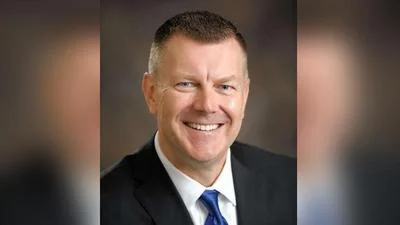Hands-on, clinical experiences are a crucial part of every healthcare student’s education. Midwestern University provides this opportunity to students at either an external site or at one of the many Midwestern University Clinics. In July, hundreds of students began their training at Midwestern University Clinics to get in-depth experience caring for patients in a clinical setting.
We talked to two of these students: Kenny Tran, a third-year student in the College of Dental Medicine – Arizona, who is now training at the MWU Dental Institute in Glendale, and Amy Nguyen, a third-year student in the Chicago College of Optometry, who is currently training at the MWU Eye Institute in Downers Grove. What exactly will you be doing as a clinical student?
Kenny:
“As a third-year dental student, I will provide comprehensive dental care for our community. It is exciting for all members of my class to finally be able to make a difference and heal patients. The care we can provide directly improves a patient's quality of life.”
Amy:
“Most preceptors will give us the independence to run most of the exam with a few check-ins to ensure we are on track. Case history, entrance testing, refraction, anterior segment health, and posterior segment health are five core aspects of a comprehensive eye exam.”
How did your didactic studies prepare you for your clinical?
Kenny:
“Our didactic training was comprehensive, rigorous, and fast-paced. To put a number to just our didacts, we completed 65 quizzes, 31 exams, four midterms, seven finals, and countless simulated tooth projects in just our first year alone. The breadth and quality of didactics were unmatched since we covered the core of what we needed for the procedures and care we provide in the clinic.”
Amy:
“Our didactic courses have helped me to view my patient holistically. Our first year built a good systemic and ocular anatomy and physiology foundation, while the second year prepared us to utilize that foundation to start treatment and diagnosis. It’s very easy, especially for student clinicians, to get fixated solely on the patient’s eyes when an issue arises. Our courses have been intertwined so that we avoid fixating on just the ocular manifestation and look at the patient as a whole. I feel confident treating my patients. Our patients can come in with issues that can vary from refractive to health issues, and I believe that the didactic courses have prepared me to treat them.”
What are you most looking forward to as part of your clinical training process here?
Kenny:
“We have some of the best opportunities to learn and practice dentistry. CDMA students treat patients with some of the highest standards of clinical care using cutting-edge technology and equipment. As with our first two years, the clinical faculty at Midwestern are some of the finest. I can't wait to practice under their mentorship and learn as much as possible. Our Midwestern campuses are the only two dental schools in the nation that I'm aware of allowing their pre-doctoral students to plan and place dental implants. I am looking forward to these exceptional opportunities to learn more advanced procedures.”
Amy:
“I look forward to getting more experience in coming up with diagnoses and treatments on my own. Seeing cases that aren’t textbook examples and working your way around them builds great optometric physicians. Analyzing symptoms and diagnostics results requires practice and I can’t wait to start seeing patients routinely to get this practice.”
What is your role as part of a team working with other students and faculty?
Kenny:
“I work with my fourth-year partner to treat our patients. We split our cases 50-50 with my partner acting as a mentor as I develop the skills to be a better clinician. Our clinic is organized into suites containing about 13-15 student pairs. Each suite has a clinical care coordinator, faculty coordinator, and practice assistants. Our faculty coordinator is our lead dentist for our group of students and provides us with guidance and additional wisdom to continue and grow. We also work with different specialists to plan and deliver more advanced care.”
Amy:
“Healthcare thrives on good teamwork, and we are getting to practice our communication as we work with other students and our faculty. Clinical rotations promote collaborative learning and strengthens our skills as future providers. My role as a student is to be active in team learning situations and support and encourage other students as they are learning to become better physicians.”
How do you feel this experience will prepare you for your future as a healthcare provider?
Kenny:
“With some of the best technology, restorative materials, and training in the country, we are ready to enter the profession beyond well-prepared. In terms of the sheer quantity, we will have completed more procedures and received more clinical training than most graduates in the country. It is impossible to say we will ultimately be fully prepared to practice dentistry right out of the gate. The practice of dentistry is just that; an endless practice of a profession that never really stops. However, I can confidently say that we will be as well-prepared as possible to step into a dental office on the first day and excel. We will continue to grow these next two years into some of the best student clinicians in the country, and I look forward to seeing that growth.”
Amy:
“Clinical rotations are designed to help sharpen our skills and push us to utilize our medical knowledge. They will also prepare us to critically organize tasks and strategically think about our patients with the help of faculty. The hands-on training will prepare me for a successful career as a healthcare provider, as clinicals are supposed to mimic real-world experiences. It gives me a taste of what it is like to perform these tasks from day-to-day in the field. The experience will also give me a chance to really utilize the one-on-one help with my preceptor to get insight into what cases are like. The advice and guidance while performing exams in the clinic is what shapes us into good healthcare providers in the future.”
To learn more about the Midwestern University Eye Institute in Downers Grove, IL, please visit: https://www.mwuclinics.com/illinois/services/specialty/eye.
To learn more about the Midwestern University Dental Institute in Glendale, AZ, please visit: https://www.mwuclinics.com/arizona/services/dental.
Original source can be found here.





 Alerts Sign-up
Alerts Sign-up